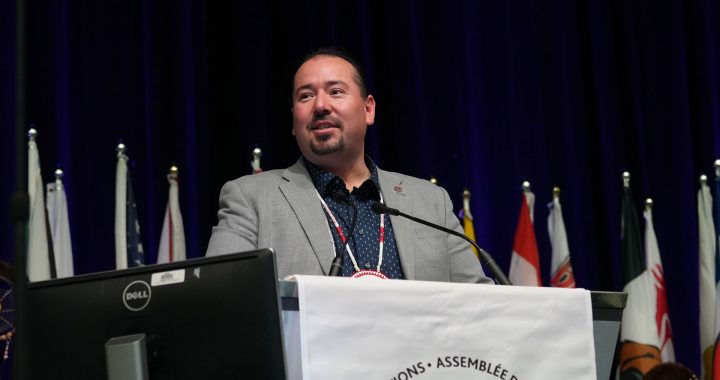The grand marshal of this year’s Capital Pride Parade in Ottawa says releasing a solidarity statement with Palestinians under attack by Israeli forces in the Gaza Strip and West Bank was the right decision.
“There was a lot of discussions with other organizations around Ottawa, like Queers for Palestine and Palestinians in Health Care in Ottawa,” Haley Robinson said. “They all came together and talking about everything that has been going on across the world. I think Pride really saw that and wanted to be able to say, ‘Hey, I want to let you know that I support this, I’m with you guys.'”
The statement speaks out against the Hamas terrorist attack on Israel last October but also recognizes Israel’s harsh military response as nothing short of genocide against Palestinian people.
“We condemn in the strongest possible terms the acts of terrorism committed that day. By the same token, we cannot stay silent in the face of Israel’s endless and brutal campaign in Gaza and mounting violence in the West Bank, where innocent Palestinians—many of whom have friends, families and loved ones in our communities—are being slaughtered, dehumanized and dispossessed of their land in flagrant violation of international law,” the statement said.
“The situation is so dire that the International Court of Justice expressed grave concerns with the state of the war in Gaza, stating that there is a plausible risk of genocide.”
It has also generated a fair amount of controversy in the nation’s capital and led to a number of people and organizations boycotting this year’s parade including Ottawa Mayor Mark Sutcliffe, Carleton University, the Children’s Hospital of Eastern Ontario, Loblaws and the Liberal Party of Canada.
But Robinson, a Two Spirit actress and model of Cree-Filipino heritage, said there is no doubt in their mind that what Palestinians are experiencing at the hands of Israeli forces is a genocide.
“What people tend to do when genocides are talked about is they kind of make it about themselves when that’s not the case,” Robinson said. “We’re just trying to acknowledge what’s happening and to share support on it and it doesn’t mean that we’re trying to tear other people down in that sense and I think some people took it as like an attack on them (Jewish community) which I don’t believe was what Capital Pride was trying to do at all.”
Patience Blush is an Indigiqueer burlesque dancer of Métis descent who is also involved in this year’s pride parade.
They said many Indigenous people in particular have felt they have had no choice but to stand in solidarity with Palestine.
“The existence of a group of people is currently right now being erased and that’s a genocide,” Blush said. “We need to stop that and so I think a lot of Indigenous people are like, ‘These are people who are Indigenous to their land, who are going through something we went through and we also know the long-term effects of this.’”
Blush also said the Pride parade has always stood up for oppressed groups in the past so it only makes sense that the organization would release a solidarity statement with Palestine.
“We should be talking about it. We should be amplifying the voices of marginalized communities and so I think Pride was, ‘All right, let’s take a step in the right direction and let’s do this. We hear our community, we see you, so let’s make sure they feel supported.'”
Those boycotting this year’s parade say that by releasing the solidarity statement organizers have created and unsafe space for the Jewish community but Robinson said this couldn’t be further from the truth.
“I think Pride is one of the safest places I have ever encountered. Pride is a place to be able to be yourself and to celebrate each other and uplift one and other. It has never been a place of harming people, of putting others down. It’s always been about creating space and uplifting voices.”
The parade gets underway on Sunday.










